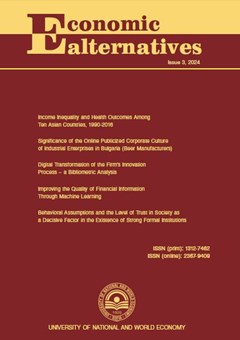Occupational Wage Inequality Amid Regional Diversity in India: A Nested Theil Approach of Decomposition
Authors: Sonu Madan, Manisha Yadav
Abstract
Wage inequality has always been a topic of discussion across the globe and is persisting prominently despite occupational and regional diversity in India. An estimation of wage inequality within and between nine broad occupational groups across various regions of India provides a meaningful insight into the existing line of research. An application of Theil index on wage level of 94,460 workers across nine broad occupational groups, obtained from unit level data of Periodic Labour Force Survey, 2019 at all India level, confirms the prevalence of substantial wage inequality. After analysing various aspects of wage inequality among various occupations, the study observed that the wage inequality is estimated to be highest, among managers, professionals, and technicians & associate professionals and least among plant and machine operators and assemblers. Regional analysis in this regard highlights that wage inequality is estimated to be highest in eastern and central regions. The study found that occupational diversity, diverse nature of work assignment in accordance with the cognitive ability of workers are the main reasons behind wage inequalities. Difference in socio-economic conditions, per-capita state domestic product and different labour market conditions contributes towards regional wage inequalities in India.

